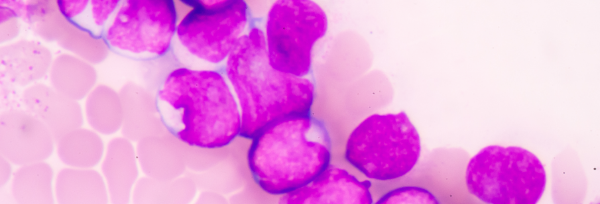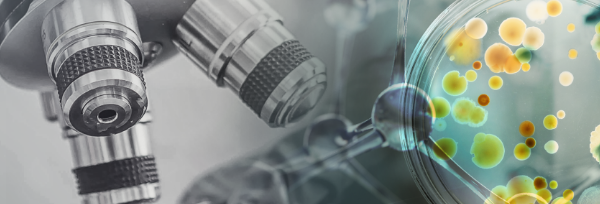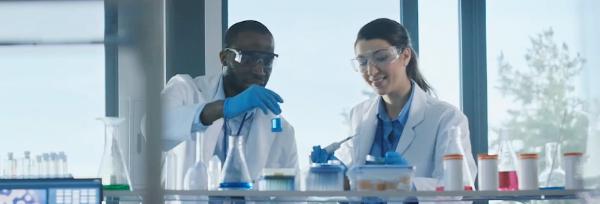Leukemia: a refuse-collecting drug which can reduce the risks posed by chemotherapy.
| | |
A new treatment against the toxic effects of chemotherapy for hematological malignancies which is more effective, simpler and more accessible. This is the outcome of the preliminary results of the study presented today in Florence, Italy. The “FLORENCE” study (Febuxostat for tumour Lysis Syndrome Prevention in hematologic malignancies) is the largest, international clinical trial ever conducted in this field with the aim of evaluating the efficacy and safety of febuxostat, a drug used to treat gout, in patients at risk of one of the most serious side effects of chemotherapy against leukemias and lymphomas. The name chosen by the Menarini Group for the clinical study, was ‘FLORENCE’, as a tribute to the city where it was developed, with an investment for the entire project of approximately 50 million Euro, and in acknowledgement of the patronage of the Municipality of Florence.
A "refuse collecting" drug which reduces the risk posed by chemotherapy of haematological malignancies
Each year over 25,000 Italians, particularly young adults, fall victim to leukemias and lymphomas, subsequently running the risk of experiencing serious side effects, including kidney failure as a result of chemotherapy: the so-called ‘tumour lysis syndrome’, which in 5% of patients, can even prove fatal. TLS, which is caused by the rapid destruction of malignant cells which in turn release toxic substances, primarily uric acid, into the blood, can be prevented through the use of febuxostat, a drug already used in the treatment of gout. From the first day of treatment, febuxostat is reduces the uric acid levels with a global superiority of approximately 30% compared to the standard therapy which has been in use for more than thirty years.
Florence, Italy, February 11th, 2014 - Each year, more than 25,000 Italians who have to fight against haematological malignancies such as leukemia and lymphoma and are curable in 70% of cases, put themselves at risk of one of the most feared side effects of chemotherapy, the so-called ‘tumour lysis syndrome’. TLS occurs when a high number of cancer cells are destroyed by drugs and subsequently release toxic substances such as uric acid into the body, particularly toxic for the kidneys. This problem affects approximately 3-20% of patients suffering from hematological cancers, but the percentage rises to 30% in young adults under 18. Preventing lysis, which can cause kidney failure in approximately 30% of cases and in 5% of patients can prove to be fatal, may soon become easier with the help of febuxostat, a drug already widely used to reduce uric acid in patients affected by gout.
Febuxostat, a drug which is safe and well tolerated, decreases, from the very first day of treatment, and acts as a ‘refuse collector’, decreasing the level of uric acid in the blood by approximately 30 % compared to allopurinol, the drug which has been in use for thirty years now. This has been demonstrated by the preliminary data of the ‘FLORENCE’ study ( Febuxostat for Tumor Lysis Syndrome Prevention in hematologic malignancies ), the largest international clinical trial ever conducted in this field, the outcome of which has been presented today for the very first time in Florence, the city where the study was first developed with an investment equal to approximately 50 million Euro for the entire programme of development of Febuxostat in the treatment of tumour lysis syndrome.
350 adult patients from 79 hematological-oncology centres in 12 nations (Italy Germany Spain Russia Croatia, Poland , Czech Republic, Romania Serbia Ukraine , Hungary and Brazil) have been involved in the research project, which began in 2012. Italy was responsible for the International co-ordination of the trial (during which patients at medium or high risk of tumour lysis were divided randomly into two groups, one treated with febuxostat and the other with allopurinol) .
"Preliminary data have shown that after just one day of therapy, febuxostat reduces for the most part the uric acid in circulation compared to allopurinol, maintaining it’s effect for the entire duration of the treatment and an overall superiority of approximately 30%” stated Michele Spina, co-director of Division A of Oncology at the National Cancer Institute in Aviano (Pordenone) and international co-ordinator of the ‘FLORENCE’ study. “The reduction is, therefore, much higher than what can be obtained with allopurinol, without any impact on renal function or significant side effects. All this may have important clinical implications as we know that, with every increase in the level of uric acid in the blood equal to 1mg / dl, the risk of developing tumour lysis syndrome doubles."
The syndrome is a side effect of chemotherapy and occurs when a large number of cancer cells, destroyed by drugs, releases large quantities of toxic substances, such as uric acid and electrolytes such as potassium, phosphorus and calcium into the blood, compromising renal function and/or giving rise to arrhythmias or seizures. The risk of developing the syndrome depends on the characteristics of the patient and the stage and extent of the tumour. It is higher in the case of aggressive tumours which develop quickly. "These tumours are also those that respond well to chemotherapy, and which act directly on the reproduction of the cancer cells” - Spina explained – “So, paradoxically, the more effective the treatment, the higher the risk of the syndrome is, which can be severe to the point of endangering the patient's life. Being able to prevent the development of the syndrome can, therefore, safeguard the patient’s chance of recovery. Prevention can be accomplished by keeping the patient well hydrated and making sure that the blood does not acidify too much. This will, in turn, reduce the likelihood of the uric acid levels affecting the kidneys causing kidney failure, as well as administering drugs aimed at reducing the concentration of the same. Up to date the standard treatment has been allopurinol, which has, however, a more limited efficacy and tolerability. The alternative treatment is a biological drug, administered intravenously, which is more expensive and not available in all countries. Feboxustat could, therefore, be an excellent option: it can be taken orally, it is well tolerated and more effective than allopurinol, and is also less expensive, a factor not to be understimated by the national health care system."

























